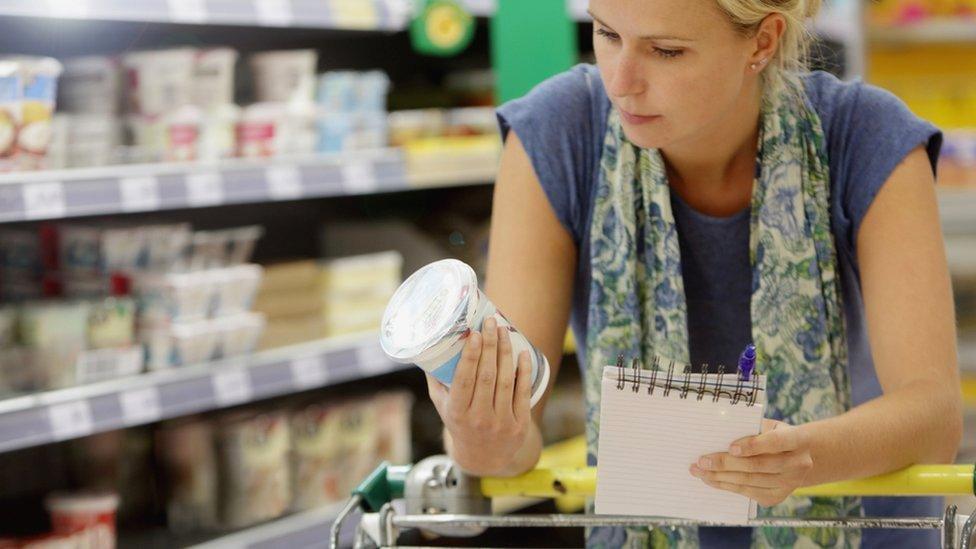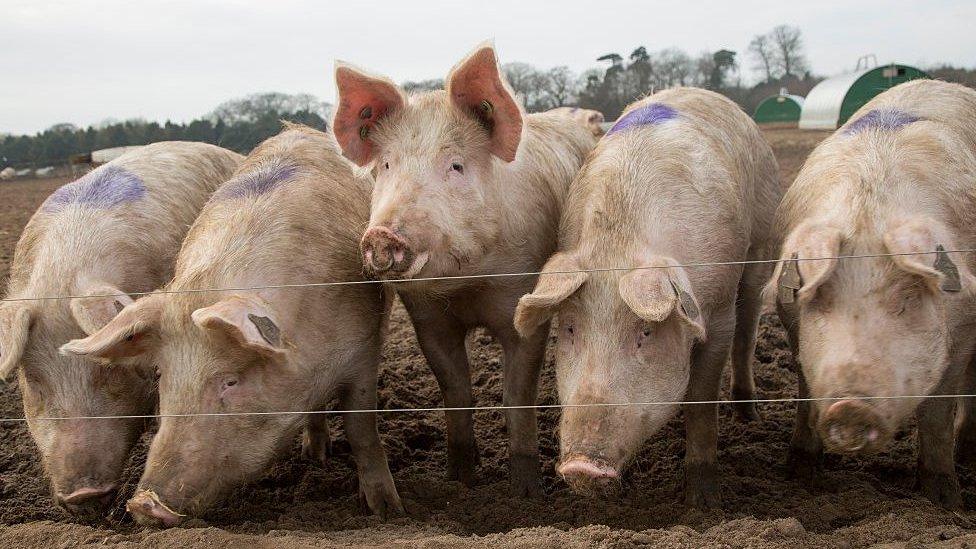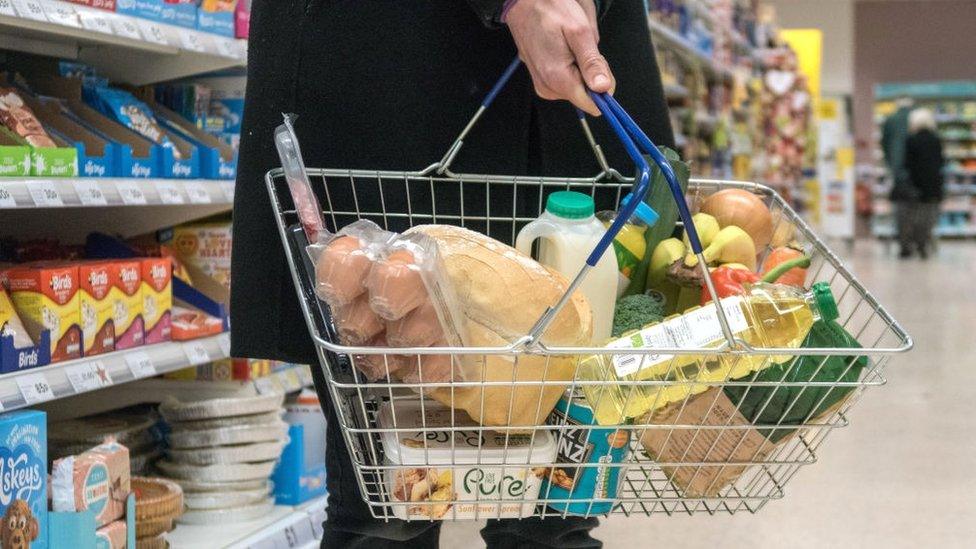The fear of inflation and what comes next
- Published

We know energy prices have been rising. And unlike any other product, the fear of inflation is fuelled by being able to see what comes next.
The price cap on household energy bills was devised to stop rip-off variable tariffs for those who neglected to shop around for fixed price deals.
They are acting very differently now, with most people on those variable tariffs - protecting people from short-term fluctuations, but giving them a clear view of what will be passed on by energy suppliers from October, and again in January.
The other rising prices, for around 700 goods and services widely checked each month by the Office for National Statistics, show that it is food that has been driving the faster rate of inflation between June and July.
That category sees prices up 12.7% in the past year, and across every category.

Kitchen staples feature in the biggest increases including cheddar cheese, yoghurt, bread, sponge cakes, ham and bacon.
Bakery costs are linked to the global shortage of wheat and other grains resulting from disruption to Ukrainian and Russian exports.
But there is better news.
The United Nations' Food and Agriculture Organisation publishes a monthly global index for grain prices, external and, after a huge post-invasion spike, prices have been falling, though they are far from being back to last year's levels.
Pig production has been disrupted by Brexit and import bans due to swine flu.
British customers usually eat a limited amount of a pig, so the finances of that sector depend on demand from other countries to use the rest of the carcass to make sausage meat.
With that market demand reduced, production is down and prices are up.

Usually, there are downward pressures from some sectors, but there is very little of that at the moment.
Premium crisps and Pot Noodles, for instance, can see heavy discounting, so prices vary widely. Not so for now.
The better news is that price inflation on second hand cars has subsided from the very high levels coming out of the pandemic.
And while the July inflation figures reflect very high petrol and diesel prices, they are on the way down - for now at least - so the next set of figures should reflect that.
Related topics
- Published17 August 2022



